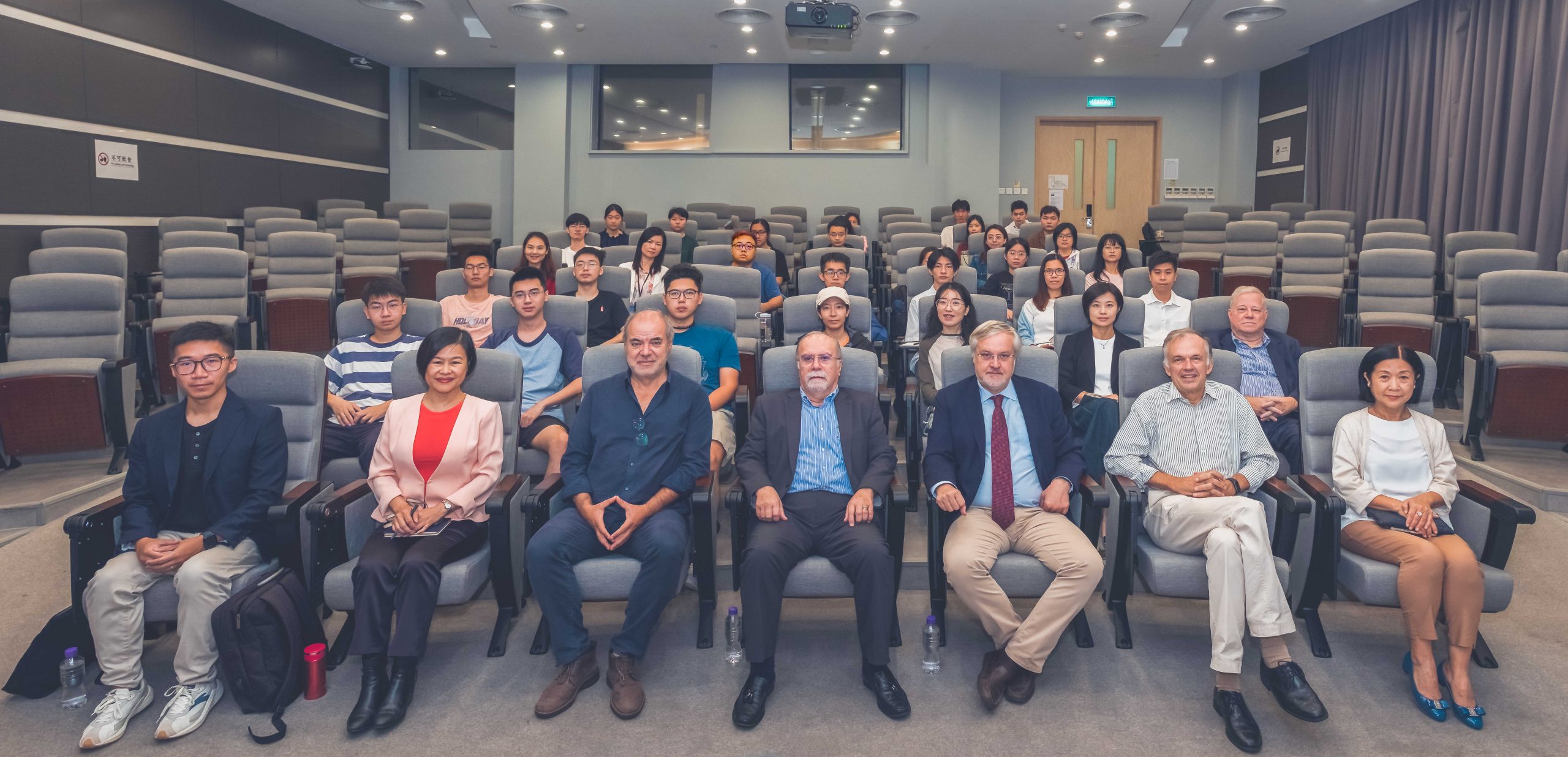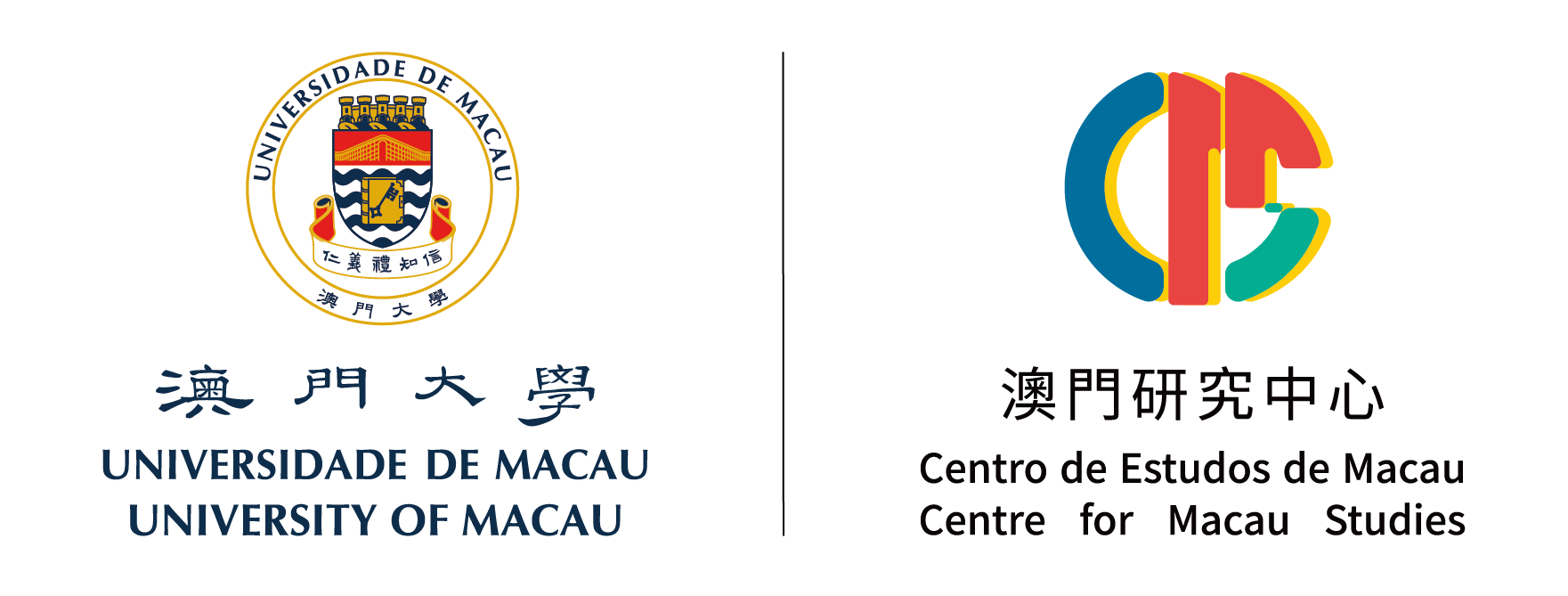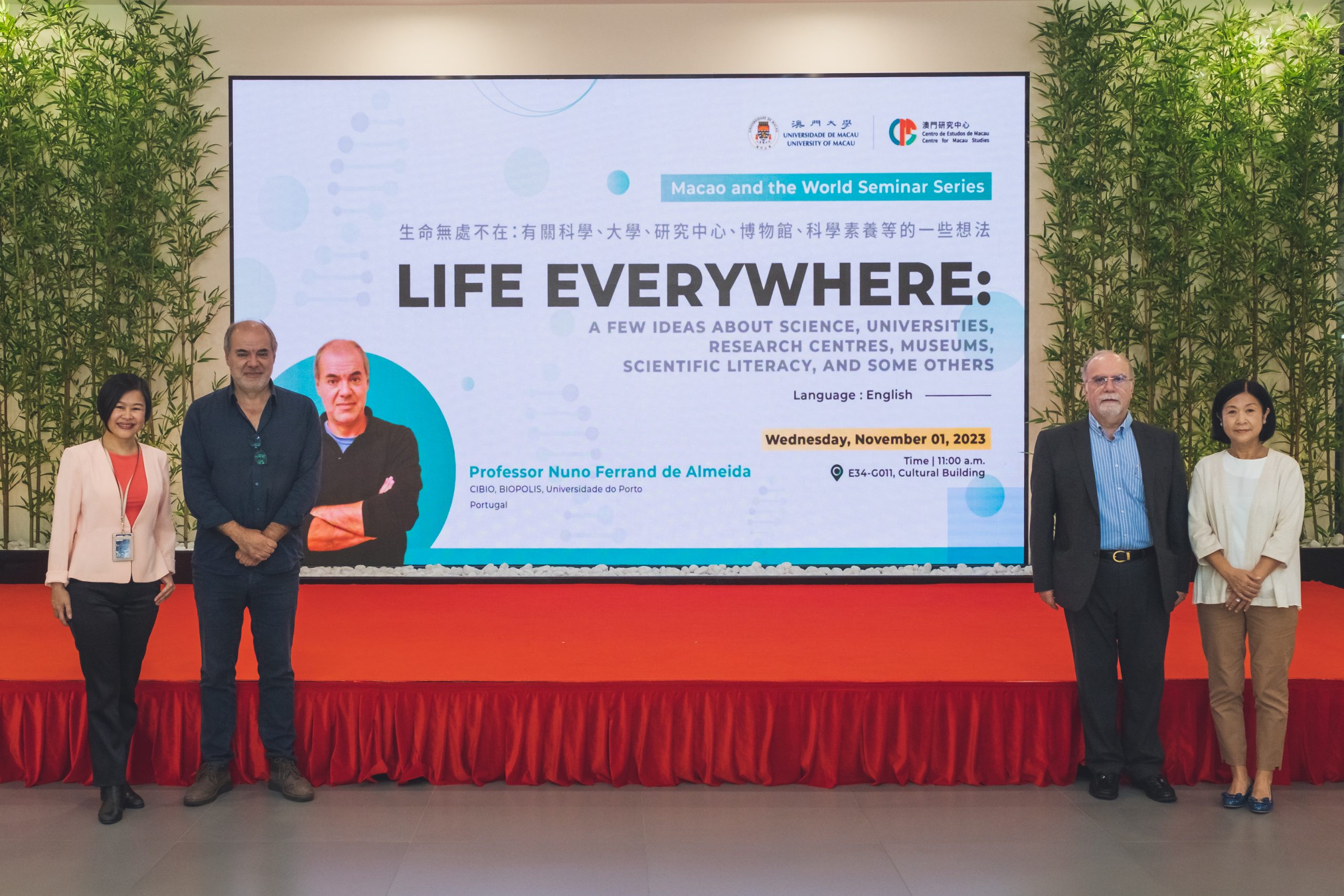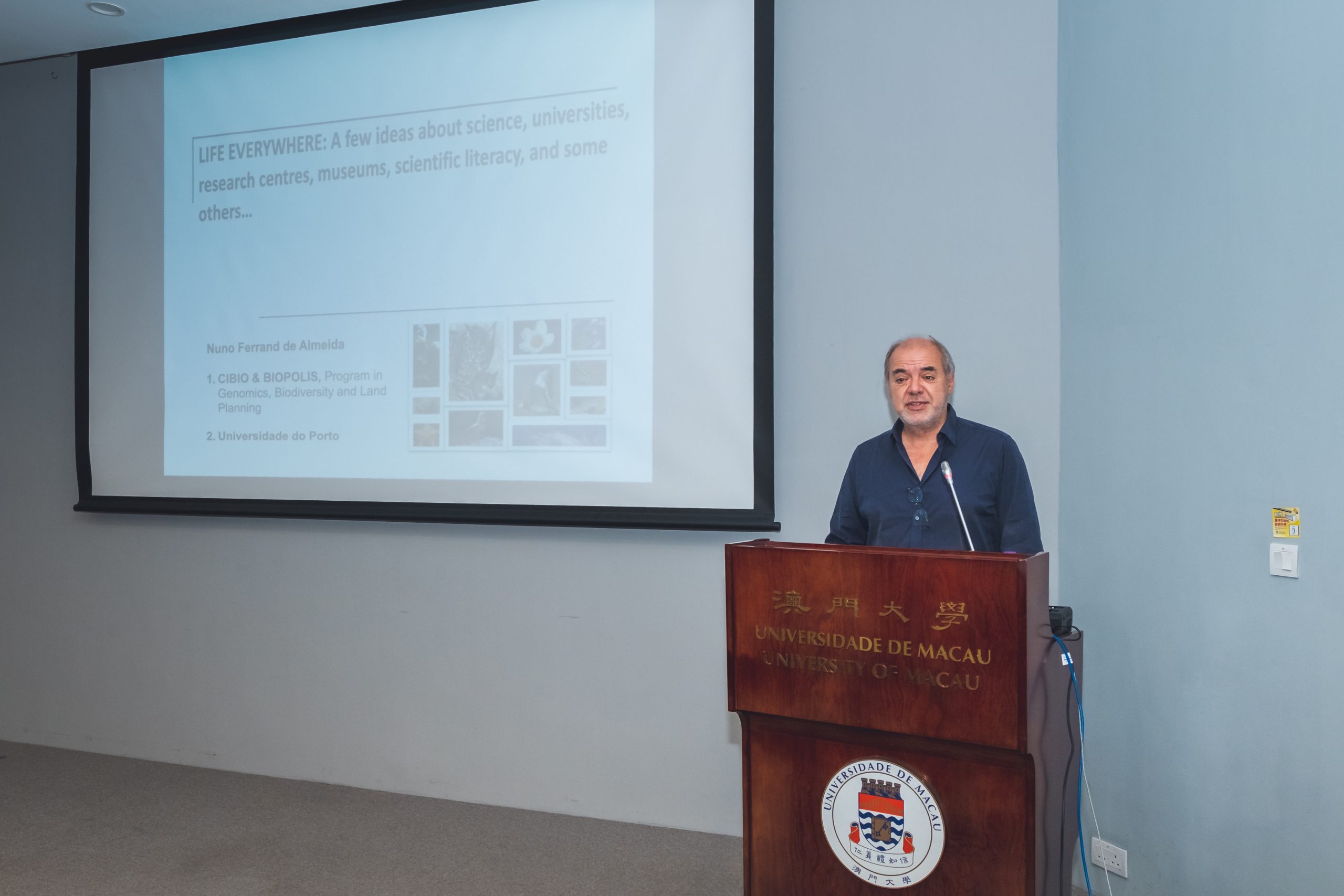
The Centre for Macau Studies (CMS) of the University of Macau (UM) held a seminar titled ‘Life Everywhere: A Few Ideas About Science, Universities, Research Centres, Museums, Scientific Literacy, and Some Others’, with Prof. Nuno Ferrand de Almeida, a world-renowned biologist in Portugal, as the speaker. During the seminar, Almeida shared his insights into biodiversity.
Almeida used the European rabbit as an example to introduce the concepts of speciation, transformation, and domestication. In addition, he explained the coevolution of hosts and parasites through their long-term competitive relationship for survival. With these examples, he explained the most recent developments in genetics achieved by humans, the ethical constraints in the application of relevant technologies, as well as the importance of public recognition to the development of genetics. Almeida pointed out that, at present, there is a lack of connectivity among relevant research institutes worldwide, with only a limited number of significant countries or regions in the Northern Hemisphere establishing connections. He expressed hope that universities and research centres will continue to develop and communicate in related fields so as to jointly enhance the scientific literacy of the global society. Furthermore, he believed that a living environment or a lifestyle where art and science are intertwined can increase people’s interest in and understanding of science, such as biology, and help bring science closer to people.
Almeida is a biologist and professor of evolutionary and conservation biology at the University of Porto in Portugal and director of CIBIO (Research Center in Biodiversity and Genetic Resources). He is currently undertaking BIOPOLIS, the largest Portuguese project in environmental biology, ecosystems, and biodiversity. Almeida was awarded the Légion d’Honneur by the French President in recognition of his significant contribution to biological research and development.
The seminar was attended by Rui Martins, vice rector of UM; Paulo Canelas de Castro, associate professor in the Faculty of Law; Agnes Lam Iok Fong, director of the CMS; Leong Chi Man, assistant professor at Beijing Normal University-Hong Kong Baptist University United International College; as well as UM students and faculty. During the interactive session, the attendees exchanged views on various topics, such as the collection of research species and the relevant permission, the public response to genetic modification technology, and lifestyles where art and science converge.



